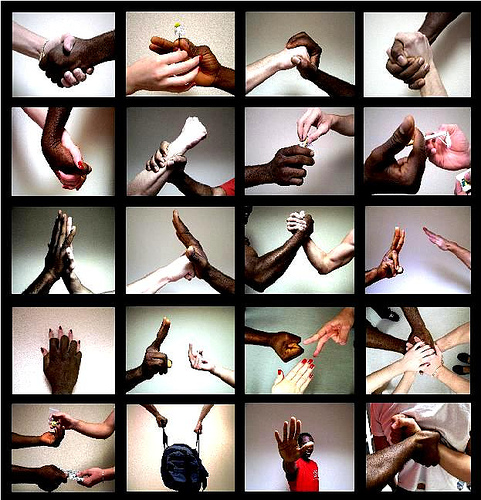Have you ever sat in the chair at the dentist office with all of those tools crammed down your throat and thought, "Why do we even have to worry about plaque and cavities? Couldn't God just have given us teeth that didn't rot in the first place? Isn't life hard enough without having to worry about my flossing technique?"
I have been asking these questions a lot lately. A few weeks ago, the dentist told me that I had two cavities. This was a big deal. I have never had a cavity in 25 years. I didn't want to try it out now.
The big problem is that it is not just your teeth. Your hair falls out or you start dealing with arthritic pain. Your eyesight and hearing abilities diminish. You deal with memory loss. Growing old in a lot of ways isn't growing.
But when we struggle with these things and deal with them through various means such as brushing our teeth, there is an underlying message of hope and redemption waiting to be heard.
It is important to note that this struggle and slow process of decay wasn't always the case. Decay entered the world, along with death, through the introduction of human sin. "Sin came into the world through one man, and death through sin," (Rom 5:12). Since that time, man and all of creation has had to deal with futility and decay. "And not only the creation, but we ourselves, who have the firstfruits of the Spirit, groan inwardly as we wait eagerly for the adoption as sons, the redemption of our bodies. For in this hope we were saved," (Rom 8:23-25).
Sin not only brought death into the world, but it also brought the painful degradation of all created things. Because of sin, your teeth rot, your breath smells like garbage, and one day you will get to rock a set of dentures. And those dentures are proof that our sin does not and will not go unpunished.
But this reality of atrophy brought by sin is not the end. There is a final hope, and it is not your toothbrush and mouthwash!
God has promised to make all things new. The first evidence of this promise of renewal being fulfilled was given when Jesus was raised from the dead.
"But in fact Christ has been raised from the dead, the firstfruits of those who have fallen asleep. For as by a man [Adam] came death, by a man [Christ] has come also the resurrection of the dead. For as in Adam all die, so also in Christ shall all be made alive. But each in his own order: Christ the firstfruits, then at his coming those who belong to Christ." 1 Corinthians 15:20-23The hope we face against cavities, gingivitis, and ultimately death is in the resurrection of Jesus Christ. As he was raised three days after his crucifixion, he will raise us up as well. But we are not just raised up in spirit. We are promised to be given new bodies. "For this perishable body must put on the imperishable, and this mortal body must put on immortality," (1 Cor 15:53).
What that means for us is we do not have to fight the everyday battles against cavities and hair-loss the same way. Those who have put their faith in the resurrected Jesus have hope. Our breath will stink for now. We will still get to rock those dentures. But we eagerly await the day our hopes are fulfilled and we are given new, immortal bodies.
Every morning, you fight an ongoing battle against decay and disease by brushing your teeth. On the surface, it seems to be an event of no real significance. But this everyday routine points to the fact that all of creation is in a process of depreciation due to human sin. This process will ultimately lead to death; however, we have not been left without an option for hope. We must look beyond the toothpaste on our brushes, look to the empty grave of Christ, and cling to the hope that he will faithfully fulfill his promise of restoration and renewal to all of those who placed their trust in him.










